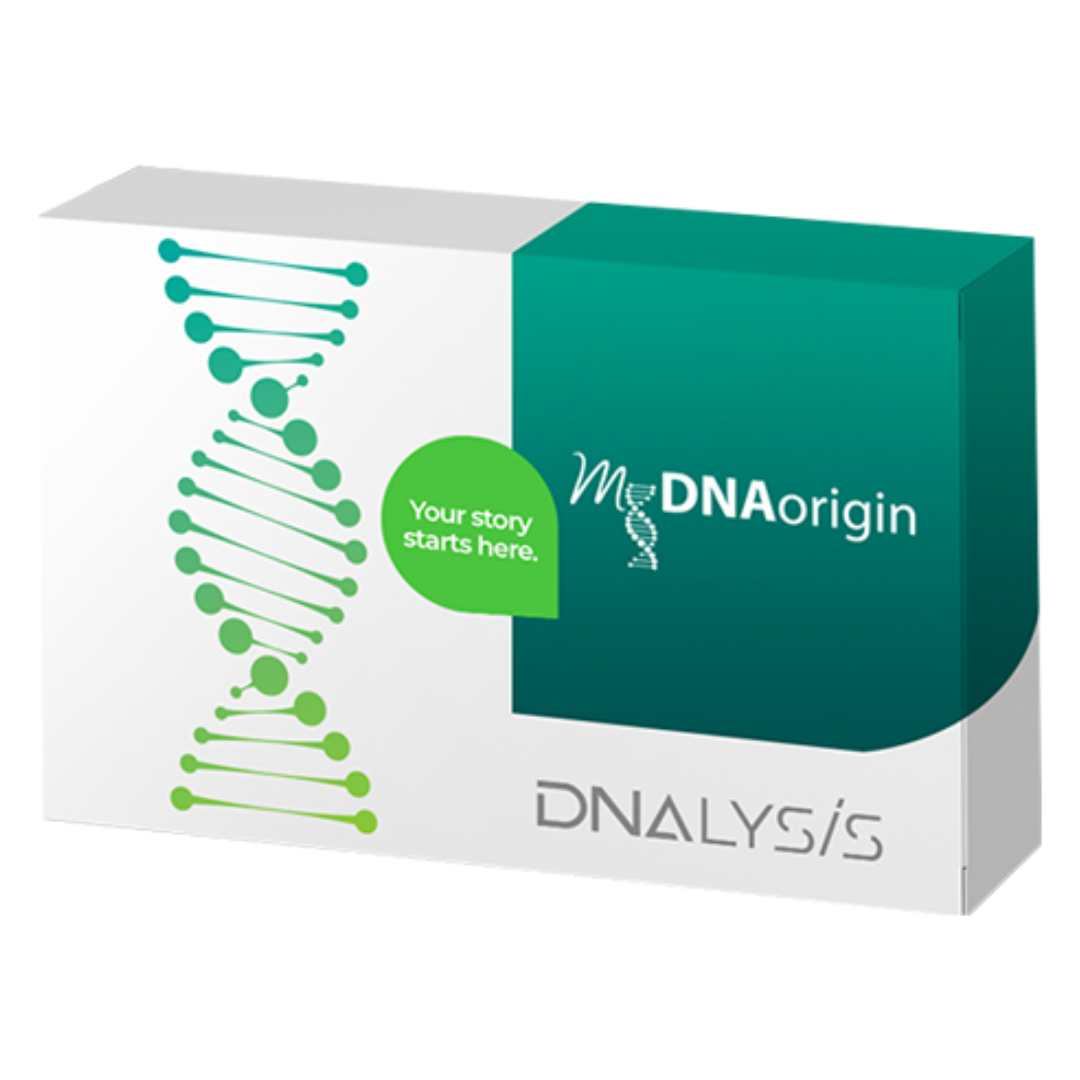
Discover your origins with the most comprehensive ancestry test in Africa, brought to you by DNAlysis Biotechnology.
About DNAorigin
DNAlysis is proud to bring you DNAorigin. Discover your origins with the most comprehensive ancestry test in Africa. By analysing thousands of genetic variations in your DNA, and comparing them to established population databases, we can take you back thousands of generations to determine where in the world your ancestors came from.
Please note the results from this test covers the haplogroups and their migration patterns. No family tree is included in the results. LivingDNA does have an option to opt in for family matching, only if a family has done the DNA Origin test previously - then you can be paired to a family member on family matching.
Where in the world is your DNA from?
The story of our human ancestry is written in one place – our genes. As DNA is passed down from generation to generation, it contains information from all of our ancestors, recombined in such a way that makes each of us unique.
The current genetic makeup of the world’s population is the direct result of migrations and settlements from Africa to the four corners of the world, which occurred as a result of changes in climate, cultural progress and territorial conquests.
Today, human populations are largely organised into three ancestral population groups – Africa, Asia and Eurasia – with genetic diversity existing between these groups. By analysing millions of variants at the same time we acquire excellent resolution in identifying your origin based on your genetic profile.
How it works
- Purchase the DNA Origin test on VitaGene.
- Once purchased, a test kit will be dispatched from DNAlysis to you to complete your sample.
- DNAlysis will then arrange for the collection of your sample, instructions are included in the test kit.
- The sample is sent to the DNAlysis laboratory and the report is ready within 6-8 weeks.
- Please note that the DNAorigin is a direct-to-consumer report. Details on how to access the online portal to view the DNAorigin results will be emailed directly to you. Click here to watch a video on how to access your results.
View the DNAlysis process
How does genetic testing for ancestry work?
DNA is passed from parent to offspring, from generation to generation, and has been doing so for hundreds of thousands of years. Therefore, your DNA contains bits of information from all your ancestors, serving as a map that can be used to determine where your predecessors originated.
- The DNA stored inside your autosomal chromosomes (DNA)
- The DNA stored inside your mitochondria (mtDNA)
- The male Y chromosome
Humans have 23 pairs of chromosomes including the sex chromosomes which determine the male (XY) or female (XX) gender. The Y chromosome only exists in males, passed from father to son, generation after generation. For males, we can therefore analyse the genetic information in your Y chromosome to discover your paternal ancestry (from your father’s side of the family). Paternal ancestry is defined by a haplo group: a group of individuals who share the same genetic variation and have the same paternal ancestor. Paternal ancestry cannot be reported on in females because females do not carry a Y chromosome
Both males and females have mtDNA, but it is only passed on by female parents to offspring. A mother will pass her mtDNA on to all of her daughters and all of hersons. The mtDNA can therefore be analysed to find out your maternal ancestry(from your mother’s side of the family). Maternal ancestry is also defined by a haplo group, being a group of individuals who share the same genetic variation and have the same maternal ancestor.
The Science
The modern human (Homo sapiens) originated in Africa, the continent where we have spent most of our existence, some 200 000 – 300 000 years ago. It was onlyabout 60 000 – 70 000 years ago that a small East African population migrated out-of-Africa, giving birth to all non-African populations. As genetic diversity continues to increase with time, so the greater genetic diversity within the much older African population can be better explained.
One group of the out-of-Africa migrants moved east, reaching India, Southeast Asia and finally Australia approximately 50 000 years ago.
Another group of out-of-Africa migrants moved to the Near East/Arabian Peninsula, and further split into two groups; one eventually reaching and settling in Europe about 45 000 years ago, and the other returning to the continent to settle in North Africa.
The populations that settled on the Asian continent eventually reached Siberia. Approximately 15 000 – 20 000 years ago they crossed the Bering Strait, reaching the American continent for the first time.
Ancient DNA studies showed that when the modern humans travelled out-of-Africa, they crossed paths with other human groups, namely Neanderthals and Denisovans. Hence, the genome of current European and Asian populations has approximately 2.3% of Neanderthal input; and the Southeast Asian population can have up to 4% of Denisovan input in their genomes. Interestingly, the Sub-Saharan African population does not have any input of either Neanderthal or Denisovan in their genomes, as these groups were never present in Africa.


